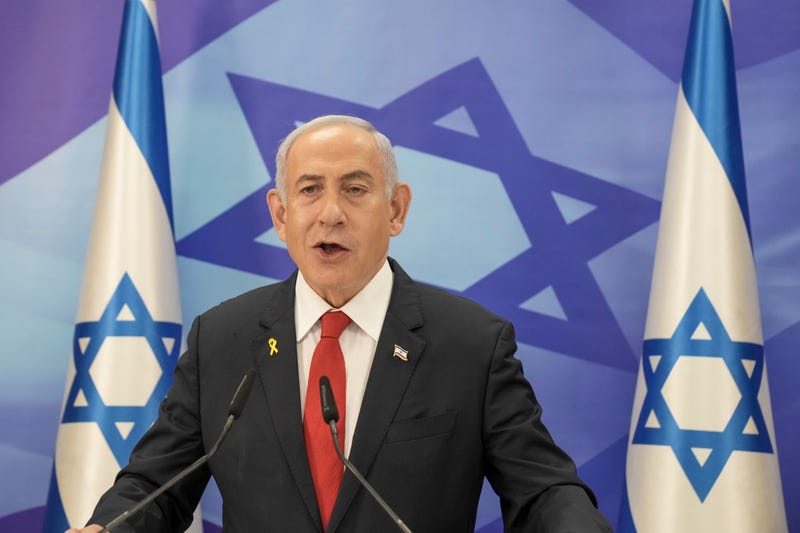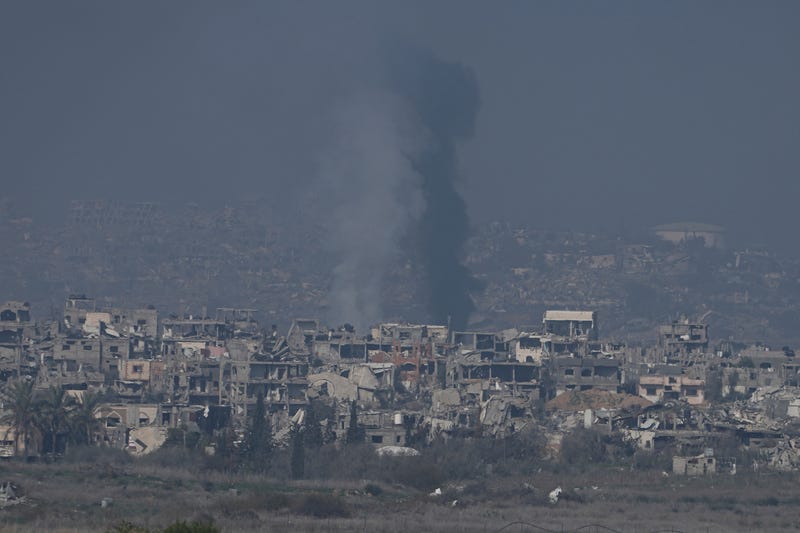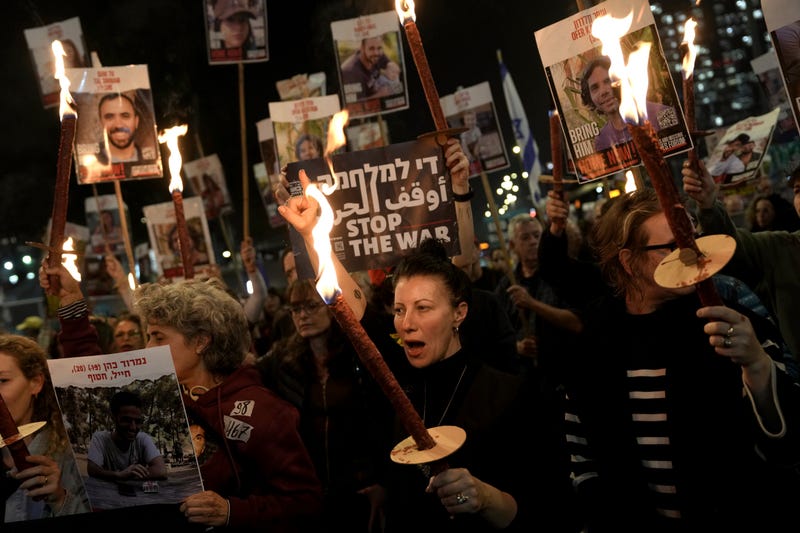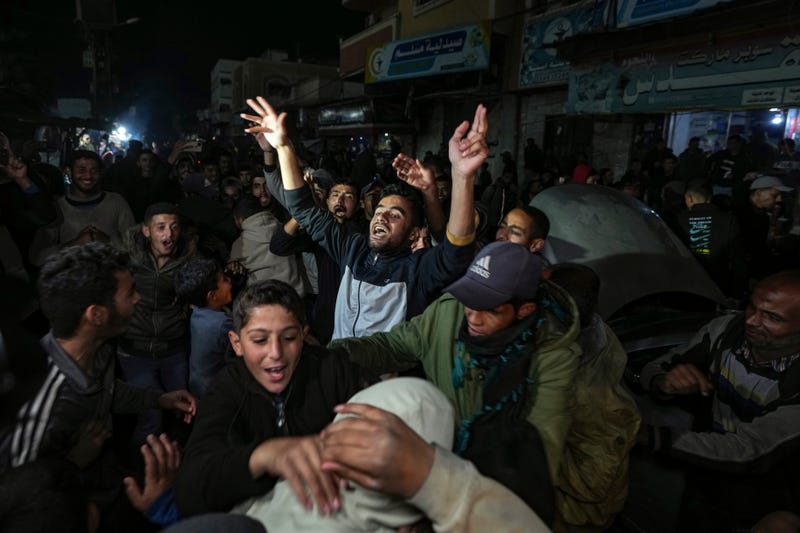
TEL AVIV, Israel (AP) — Prime Minister Benjamin Netanyahu said Thursday that a "last-minute crisis" with Hamas was holding up Israeli approval of a long-awaited ceasefire that would pause the fighting in the Gaza Strip and release dozens of hostages.
Netanyahu began signaling there were issues with the deal just hours after President Joe Biden and key mediator Qatar announced it was complete. The objection created a dual reality: War-weary Palestinians in Gaza, the relatives of hostages held there and world leaders all welcomed an agreement, expected to begin Sunday, even as Netanyahu said it was not yet finalized.
“Hamas is backing out of the understandings and creating a last-minute crisis that prevents a settlement,” Netanyahu's office said.
It was not yet clear if Netanyahu’s statements merely reflected jockeying to keep his fractious coalition together or whether the deal was at risk.
Netanyahu's office said his Cabinet won’t meet to approve the deal until Hamas backs down, accusing it of reneging on parts of the agreement in an attempt to gain further concessions, without elaborating.
Izzat al-Rishq, a senior Hamas official, said Hamas “is committed to the ceasefire agreement, which was announced by the mediators.”
The deal announced Wednesday would see a scores of hostages held in Gaza released and a pause in fighting with a view to eventually wind down a 15-month war that has destabilized the Middle East and sparked worldwide protests.

Netanyahu faces heavy internal pressure
Netanyahu’s office earlier accused Hamas of backtracking on an understanding that he said would give Israel a veto over which prisoners convicted of murder would be released in exchange for hostages.
The Israeli prime minister has faced great domestic pressure to bring home the scores of hostages, but his far-right coalition partners have threatened to bring down his government if he makes too many concessions. He has enough opposition support to approve an agreement even without those partners, but doing so would weaken his coalition.
One of his far-right allies, National Security Minister Itamar Ben Gvir, has already come out against the deal. Another, Bezalel Smotrich, posted on X late Wednesday that he was demanding “absolute certainty” that Israel can resume the war later, calling the current deal “bad and dangerous” for Israel.
The departure of both of their factions would seriously destabilize the government and could lead to early elections.

A night of heavy Israeli strikes
Palestinians in Gaza reported heavy Israeli bombardment overnight as people were celebrating the ceasefire deal. In previous conflicts, both sides have stepped up military operations in the final hours before ceasefires as a way to project strength.
“We were expecting that the occupation would intensify the bombing, like they did every time there were reports on progress in the truce (negotiations),” said Mohammed Mahdi, who fled his home a few months ago and is sheltering in Gaza City.
The Hamas-run Gaza Health Ministry said Israeli strikes have killed at least 72 people since the ceasefire deal was announced. It said the toll from Thursday’s strikes only includes bodies brought to two hospitals in Gaza City, and that the actual toll is likely higher.
“Yesterday was a bloody day, and today is bloodier,” said Zaher al-Wahedi, head of the ministry’s registration department.
An Associated Press reporter on the Israeli side of the border near Gaza heard more airstrikes and artillery fire on Thursday.

Hamas triggered the war with its Oct. 7, 2023, terror attack into Israel that killed some 1,200 people and took 250 others hostage. About 100 of those hostages, living and dead, are still being held in Gaza.
Israel responded with a fierce offensive that has killed over 46,000 Palestinians, according to the the Gaza Health Ministry, which does not distinguish between civilians and militants. Israel says it has killed over 17,000 fighters, without providing evidence.
The military campaign has also leveled vast swaths of Gaza, and pushed around 90% of Gaza’s population of 2.3 million people from their homes. Hundreds of thousands are struggling with hunger and disease in squalid tent camps on the coast, according to United Nations officials.
